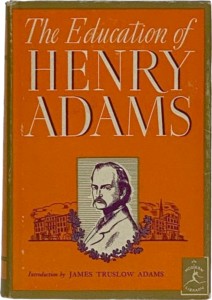Before the Internet, we had to go to political rallies or beer parlors to collect half-truths and bizarre opinions, but now we simply thumb through collections of them on the Internet. One of these is the notion that writers should avoid the passive voice.
The great prophets of the anti-passive movement were William Strunk and E. B. White, who set out to prove that writing well and thinking well don’t always coexist well. But back then, you pretty much had to read a book or encounter an English teacher to find an argument against the use of the passive.
Nowadays you find them in bunches on the Internet, where aficionados of fine style gather to contemplate issues of grammar and usage, one of which we shall quote letter-for-letter:
“The passive voice sucks. Really. Just imagine if every sentance in a book, or in a news paper was written like that. No-one would ever bother to pick them up. It really does cause unnecessary mental hurdles, and it’s best to put as few hurdles infront of your examiners as possible, for all concerned.”
-Source unknown 1Possibly dissolved into the mists of time. It turns out, the internet isn’t forever after all. – The Editor
Another of these even applies the word-parsimony notion to the passive, combining two taboos nicely:
“For one thing, since passives always require more words than actives, anything you may happen to write is longer than it would have been before the attack of the worm.”
Richard Mitchell – The Worm in the Brain
Now this name-calling is strictly inappropriate in a discussion of grammar. World-wide, worms and passives alike should rise up against such calumny. In brief, it sucks. And so we decided to give the passive a chance to defend itself:
Us: Well, you know why you’re here. People have subjected you to merciless personal attacks, and we’d like to know how you feel about this.
Passive Voice: Obviously I am hurt by it. It’s only because I’m infrequent that I am picked on. But a world without me is a world in which someone can’t sidestep blame or remain anonymous.
Us: We don’t get it.
Passive Voice: Well, let it be supposed that it is wanted by you for it to be said that, “The window has been broken.” But it isn’t wanted by you for it to be said whom it was broken by. Without me, the question of whom the window was broken by could not be avoided.
Us: Oh. So if I broke the window, I could just say, “Hey, the window was broken,” instead of having to put myself in there as the agent.
Passive Voice: It is got by you!
Us: Too cool! The passive is wanted to be used by us all the time now! A lot of things are thought of by us that would be good if blame could be—oh, never mind.
It’s obviously absurd to use nothing but the passive in your writing, but how is this an argument against using it at all? This is like saying that because diced jalapeños don’t go well with Splish Splash Sherbet, you should ban them from the corner market.
The passive is rarer than the active because it is not the most basic, simplest sentence-type, but a derived form. English requires a subject for its verb, and the normal subject is the agent of the action in the verb: “Fred [agent] hates [verb] bugs [object ‘operated on’ by the verb, which linguists jokingly named the ‘patient’].” Suppose, however, you don’t know or don’t wish to specify the agent: you still have to have a subject, or you can’t say anything at all. The passive allows you to go on talking sans agent: “Bugs are widely hated.” To say “Bugs are hated by Fred” is a stupid use of the passive: you have a perfectly usable agent.
But there are many good reasons for employing the passive. For example, some agents don’t serve well as subjects because the hearer/reader can’t identify them semantically. You can avoid the problem, while still talking about them, by passivizing. Let’s say your brother steps out into the street without looking, right in front of a speeding Mercedes, and the driver hits the brakes, but his car is old, without ABS, and it spins out of control and whacks your brother loopy. Later, you want to tell someone about this. You have two choices:
“A car hit my brother.”
“My brother was hit by a car.”
Anyone familiar with English would choose the second sentence. But why? Because here the passive is actually easier to comprehend than the active. This is because “a” marks “car” as unknown to the reader/hearer, and people figure out what a sentence means on the basis of what the subject means; if the subject is “unknown” information, your brain goes into a tailspin. Like that car. The hearer/reader, however, has no trouble computing the exact meaning of “brother” even if he never met him or knew you had one.
But let’s see if any competent writers use the passive. We found these just by taking a few minutes to leaf through some of our favorite authors:
Mark Twain, Life on the Mississippi: “For instance, when the Mississippi was first seen by a white man…”
William Faulkner, “A Bear Hunt”: “Ratliff may be seen anywhere without surprise…”
Henry David Thoreau, Walden: “Better if they had been born in the open pasture and suckled by a wolf…”
Jane Austen, Sense and Sensibility: “His father was rendered easy by such an assurance…”
V. S. Naipaul, An Area of Darkness: “Coelho had been sent by the travel agency to help me through the customs.”
Now, it takes no time at all to demonstrate that good writers use the passive. Anyone who wants can do this at his or her leisure. But what we really need is an example of a passive that, no matter what your rhetorical contortions, you can’t possibly turn into active voice.
And two people, the prophet Isaiah and Henry Adams, have given us such an example:
Isaiah 6:9: “For unto us a child is born.”
Here the passive is doing what it does best: making the object of a verb into the subject of a sentence. In this passage, the Prince of Peace has every right to expect to be made the subject, but that can happen only if the sentence is made passive. The alternative is something like, “Hey, we had a kid.” If you have trouble seeing the difference between the heightened rhetoric of “For unto us a child is born” and “Hey, we had a kid,” then you probably shouldn’t be thinking about a career as a prophet.
But our story doesn’t end there. Henry Adams, when he wrote The Education of Henry Adams, decided to open the book with a mock-pompous version of the line in Isaiah: “Under the shadow of Boston State House, turning its back on the house of John Hancock, the little passage called Hancock Avenue runs, or ran, from Beacon Street, skirting the State House grounds, to Mount Vernon Street, on the summit of Beacon Hill; and there, in the third house below Mount Vernon Place, February 15, 1838, a child was born, and christened later by his uncle, the minister of the First Church after the tenets of Boston Unitarianism, as Henry Brooks Adams.”
It should be obvious that Adams couldn’t write this in first person without ruining the joke. “For unto us I was born” doesn’t work either. So he wrote the entire book in the third person. And the mock-pompous style isn’t even possible without the passive.
The joke is lost on the modern reader, who might not know that the original passage in Isaiah goes on to say, “And the government shall be upon his shoulder.” Adams was from a family with a stunning amount of involvement in our political history. Anyone who shook the family tree of Henry Brooks Adams would be dodging a governor, an ambassador, a fine selection of legislators and even a couple of presidents. Much of the book deals with his sense of being an inadequate participant in a famous political family.
And Adams goes on in the second paragraph of his book to expand the metaphorical foundation of his autobiography, but we’re not going to quote it. You should read the book yourself, and it’s on Gutenberg. Free. Until publishers start paying us to read books, that is one of the great bargains of the ages. Even if the entire first paragraph is in the passive voice.
Originally published in another dementia on July 14, 2011

